This site uses cookies as defined in our Cookie Policy, by continuing to use this site you agree to their use.
Continue
| Arrive | Depart | ||||||
| 13th13 | JulJul | 202525 | Venice, Italy, embark on the MSC Opera | 18:00 | |||
Venice is a city unlike any other. No matter how often you've seen it in photos and films, the real thing is more dreamlike than you could imagine. With canals where streets should be, water shimmers everywhere. The fabulous palaces and churches reflect centuries of history in what was a wealthy trading center between Europe and the Orient. Getting lost in the narrow alleyways is a quintessential part of exploring Venice, but at some point you'll almost surely end up in Piazza San Marco, where tourists and locals congregate for a coffee or an aperitif. | |||||||
| 14th14 | JulJul | 202525 | At Sea | ||||
| 15th15 | JulJul | 202525 | Dubrovnik, Croatia | 07:00 | 19:00 | ||
Nothing can prepare you for your first sight of Dubrovnik. Lying 216 km (135 miles) southeast of Split and commanding a jaw-dropping coastal location, it is one of the world's most beautiful fortified cities. Its massive stone ramparts and fortress towers curve around a tiny harbor, enclosing graduated ridges of sun-bleached orange-tiled roofs, copper domes, and elegant bell towers. Your imagination will run wild picturing what it looked like seven centuries ago when the walls were built, without any suburbs or highways around it, just this magnificent stone city rising out of the sea.In the 7th century AD, residents of the Roman city Epidaurum (now Cavtat) fled the Avars and Slavs of the north and founded a new settlement on a small rocky island, which they named Laus, and later Ragusa. On the mainland hillside opposite the island, the Slav settlement called Dubrovnik grew up. In the 12th century the narrow channel separating the two settlements was filled in (now the main street through the Old Town, called Stradun), and Ragusa and Dubrovnik became one. The city was surrounded by defensive walls during the 13th century, and these were reinforced with towers and bastions in the late 15th century.From 1358 to 1808 the city thrived as a powerful and remarkably sophisticated independent republic, reaching its golden age during the 16th century. In 1667 many of its splendid Gothic and Renaissance buildings were destroyed by an earthquake. The defensive walls survived the disaster, and the city was rebuilt in baroque style.Dubrovnik lost its independence to Napoléon in 1808, and in 1815 passed to Austria-Hungary. During the 20th century, as part of Yugoslavia, the city became a popular tourist destination, and in 1979 it was listed as a UNESCO World Heritage Site. During the war for independence, it came under heavy siege. Thanks to careful restoration, few traces of damage remain; however, there are maps inside the Pile and Ploče Gates illustrating the points around the city where damage was done. It’s only when you experience Dubrovnik yourself that you can understand what a treasure the world nearly lost | |||||||
| 16th16 | JulJul | 202525 | Corfu, Greece | 09:00 | 18:00 | ||
Corfu town today is a vivid tapestry of cultures—a sophisticated weave, where charm, history, and natural beauty blend. Located about midway along the island's east coast, this spectacularly lively capital is the cultural heart of Corfu and has a remarkable historic center that UNESCO designated as a World Heritage Site in 2007. All ships and planes dock or land near Corfu town, which occupies a small peninsula jutting into the Ionian Sea.Whether arriving by ferry from mainland Greece or Italy, from another island, or directly by plane, catch your breath by first relaxing with a coffee or a gelato in Corfu town's shaded Liston Arcade, then stroll the narrow lanes of its pedestrians-only quarter. For an overview of the immediate area, and a quick tour of Mon Repos palace, hop on the little tourist train that runs from May to September. Corfu town has a different feel at night, so book a table at one of its famed tavernas to savor the island's unique cuisine.The best way to get around Corfu town is on foot. The town is small enough so that you can easily walk to every sight. There are local buses, but they do not thread their way into the streets (many now car-free) of the historic center. If you are arriving by ferry or plane, it's best to take a taxi to your hotel. Expect to pay about €10 from the airport or ferry terminal to a hotel in Corfu town. If there are no taxis waiting, you can call for one. | |||||||
| 17th17 | JulJul | 202525 | Kotor, Montenegro | 08:00 | 18:00 | ||
Backed by imposing mountains, tiny Kotor lies hidden from the open sea, tucked into the deepest channel of the Bokor Kotorska (Kotor Bay), which is Europe's most southerly fjord. To many, this town is more charming than its sister UNESCO World Heritage Site, Dubrovnik, retaining more authenticity, but with fewer tourists and spared the war damage and subsequent rebuilding which has given Dubrovnik something of a Disney feel.Kotor's medieval Stari Grad (Old Town) is enclosed within well-preserved defensive walls built between the 9th and 18th centuries and is presided over by a proud hilltop fortress. Within the walls, a labyrinth of winding cobbled streets leads through a series of splendid paved piazzas, rimmed by centuries-old stone buildings. The squares are now haunted by strains from buskers but although many now house trendy cafés and chic boutiques, directions are still given medieval-style by reference to the town’s landmark churches.In the Middle Ages, as Serbia's chief port, Kotor was an important economic and cultural center with its own highly regarded schools of stonemasonry and iconography. From 1391 to 1420 it was an independent city-republic and later, it spent periods under Venetian, Austrian, and French rule, though it was undoubtedly the Venetians who left the strongest impression on the city's architecture. Since the breakup of Yugoslavia, some 70% of the stone buildings in the romantic Old Town have been snapped up by foreigners, mostly Brits and Russians. Porto Montenegro, a new marina designed to accommodate some of the world’s largest super yachts, opened in nearby Tivat in 2011, and along the bay are other charming seaside villages, all with better views of the bay than the vista from Kotor itself where the waterside is congested with cruise ships and yachts. Try sleepy Muo or the settlement of Prčanj in one direction around the bay, or Perast and the Roman mosaics of Risan in the other direction. | |||||||
| 18th18 | JulJul | 202525 | Bari, Italy | 07:00 | 17:00 | ||
Bari, capital of the province of Apulia, lies on southern Italy's Adriatic coast. Its busy port is a leading commercial and industrial centre as well as a transit point for travellers catching ferries across the Adriatic to Greece. Bari comprises a new and an old town. To the north, on a promontory between the old and new harbours, lies the picturesque old town, or Citta Vecchia, with a maze of narrow, crooked streets. To the south is the spacious and regularly planned new town, which has developed considerably since 1930, when the Levant Fair was first held here. The heart of the modern town is Piazza della Liberta. The busy thoroughfare, Corso Vittorio Emanuele II, separates the new town from the old. At the eastern end of the Corso begins the Lungomare Nazario Sauro, a magnificent seafront promenade that runs along the old harbour. Bari and the Apulian region were long recognized for their strategic location, attracting a succession of colonizers such as the Normans, Moors and Spaniards, each leaving their mark. | |||||||
| 19th19 | JulJul | 202525 | Zadar, Croatia | 09:30 | 18:00 | ||
Dalmatia's capital for more than 1,000 years, Zadar is all too often passed over by travelers on their way to Split or Dubrovnik. What they miss out on is a city of more than 73,000 that is remarkably lovely and lively despite—and, in some measure, because of—its tumultuous history. The Old Town, separated from the rest of the city on a peninsula some 4 km (2½ miles) long and just 1,640 feet wide, is bustling and beautiful: the marble pedestrian streets are replete with Roman ruins, medieval churches, palaces, museums, archives, and libraries. Parts of the new town are comparatively dreary, a testament to what a world war followed by decades of communism, not to mention a civil war, can do to the architecture of a city that is 3,000 years old. A settlement had already existed on the site of the present-day city for some 2,000 years when Rome finally conquered Zadar in the 1st century BC; the foundations of the forum can be seen today. Before the Romans came the Liburnians had made it a key center for trade with the Greeks and Romans for 800 years. In the 3rd century BC the Romans began to seriously pester the Liburnians, but required two centuries to bring the area under their control. During the Byzantine era, Zadar became the capital of Dalmatia, and this period saw the construction of its most famous church, the 9th-century St. Donat's Basilica. It remained the region's foremost city through the ensuing centuries. The city then experienced successive onslaughts and occupations—both long and short—by the Osogoths, the Croatian-Hungarian kings, the Venetians, the Turks, the Habsburgs, the French, the Habsburgs again, and finally the Italians before becoming part of Yugoslavia and, in 1991, the independent republic of Croatia. Zadar was for centuries an Italian-speaking city, and Italian is still spoken widely, especially by older people. Indeed, it was ceded to Italy in 1921 under the Treaty of Rapallo (and reverted to its Italian name of Zara). Its occupation by the Germans from 1943 led to intense bombing by the Allies during World War II, which left most of the city in ruins. Zadar became part of Tito's Yugoslavia in 1947, prompting many Italian residents to leave. Zadar's most recent ravages occurred during a three-month siege by Serb forces and months more of bombardment during the Croatian-Serbian war between 1991 and 1995. But you'd be hard-pressed to find outward signs of this today in what is a city to behold. There are helpful interpretive signs in English all around the Old Town, so you certainly won't feel lost when trying to make sense of the wide variety of architectural sites you might otherwise pass by with only a cursory look. | |||||||
| 20th20 | JulJul | 202525 | Venice, Italy, disembark the MSC Opera | 07:00 | |||
Venice is a city unlike any other. No matter how often you've seen it in photos and films, the real thing is more dreamlike than you could imagine. With canals where streets should be, water shimmers everywhere. The fabulous palaces and churches reflect centuries of history in what was a wealthy trading center between Europe and the Orient. Getting lost in the narrow alleyways is a quintessential part of exploring Venice, but at some point you'll almost surely end up in Piazza San Marco, where tourists and locals congregate for a coffee or an aperitif. | |||||||
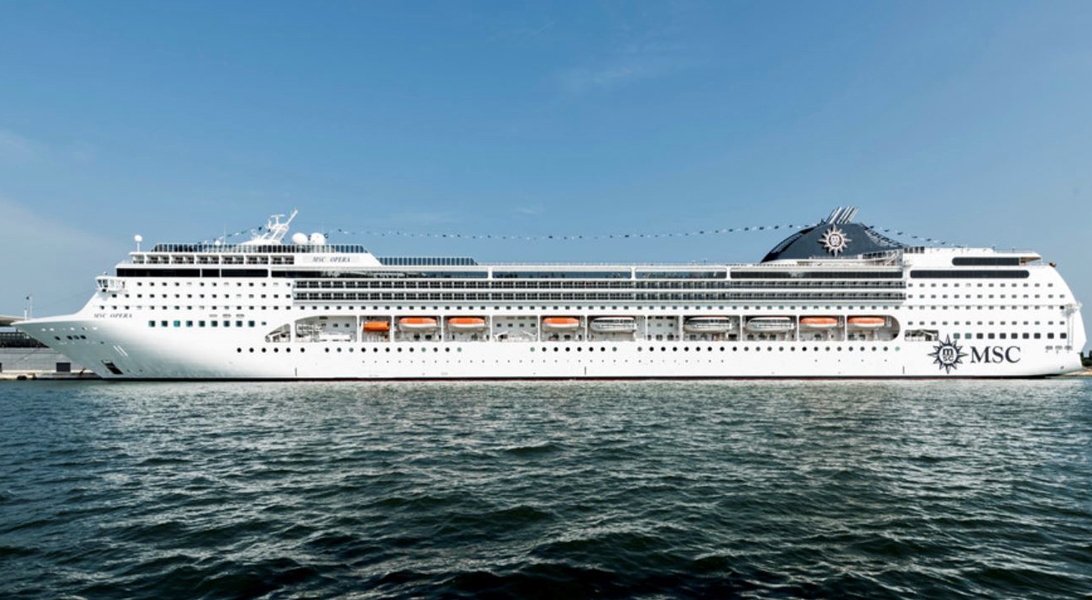








The images shown are for illustration purposes only and may not be an exact representation of what you find on the ship.
The images shown are for illustration purposes only and may not be an exact representation of what you find on the ship.
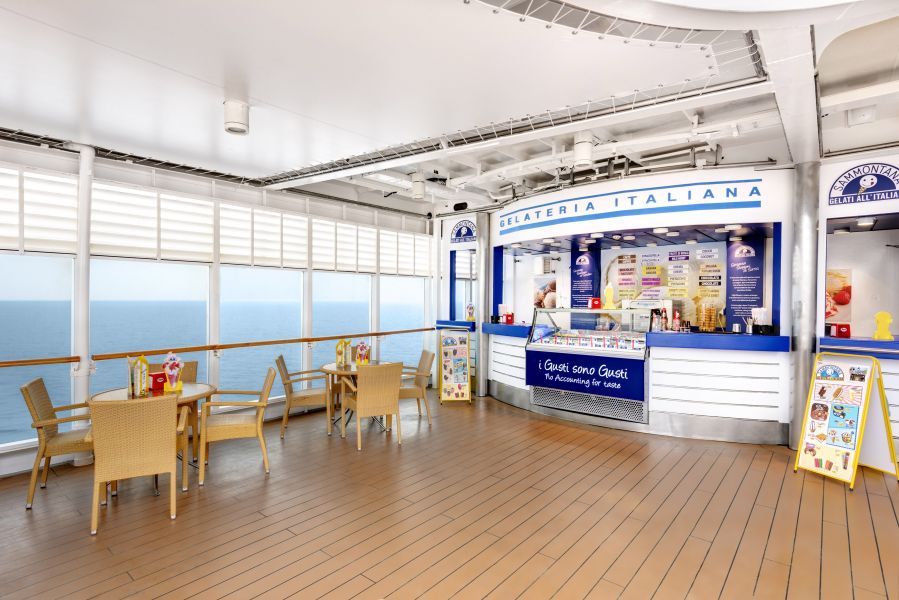
MSC Cruises is proud to bring the very best in artisanal gelato to our travellers. Venchi has been making superlative desserts since 1878 and owes much of its success to the use of 100% natural ingredients and exclusive recipes, from its intense extra dark chocolate to luscious gianduja and refreshing fruit sorbets.
Freshly made daily on board
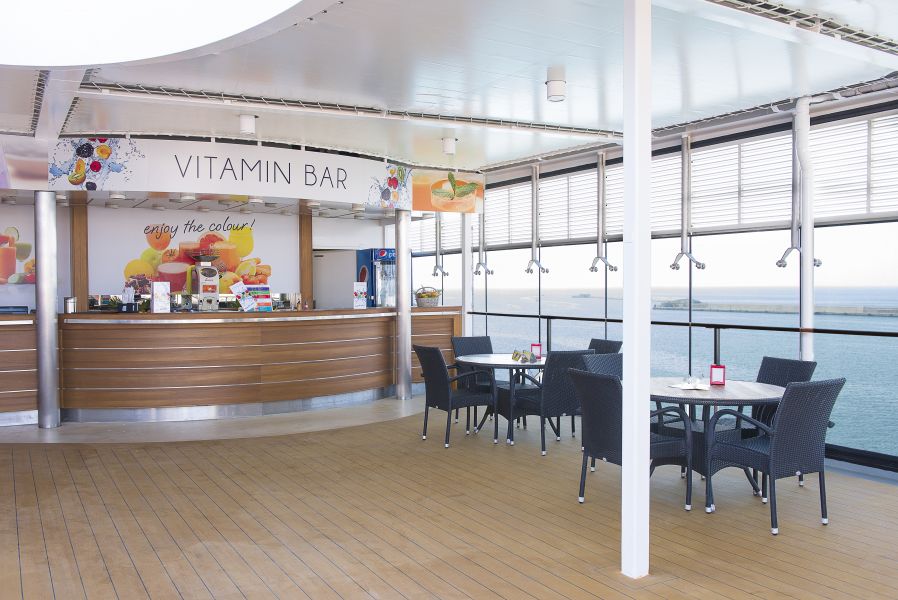
Bar with vitamin drinks made from fresh fruits and juice such as Orange Delight and Carrot Fantasy.
The images shown are for illustration purposes only and may not be an exact representation of what you find on the ship.
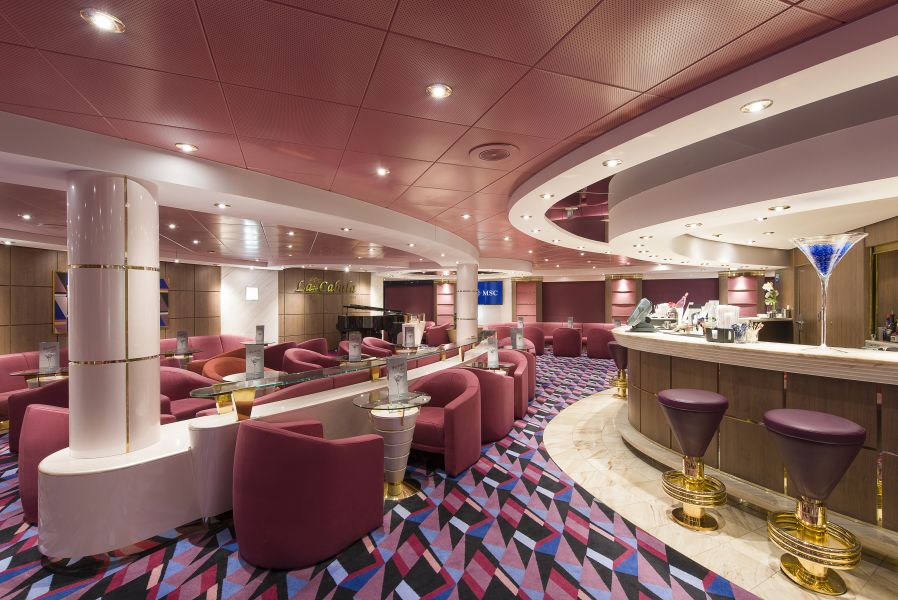
Show lounge, with piano and bar and 193 square foot dance floor.
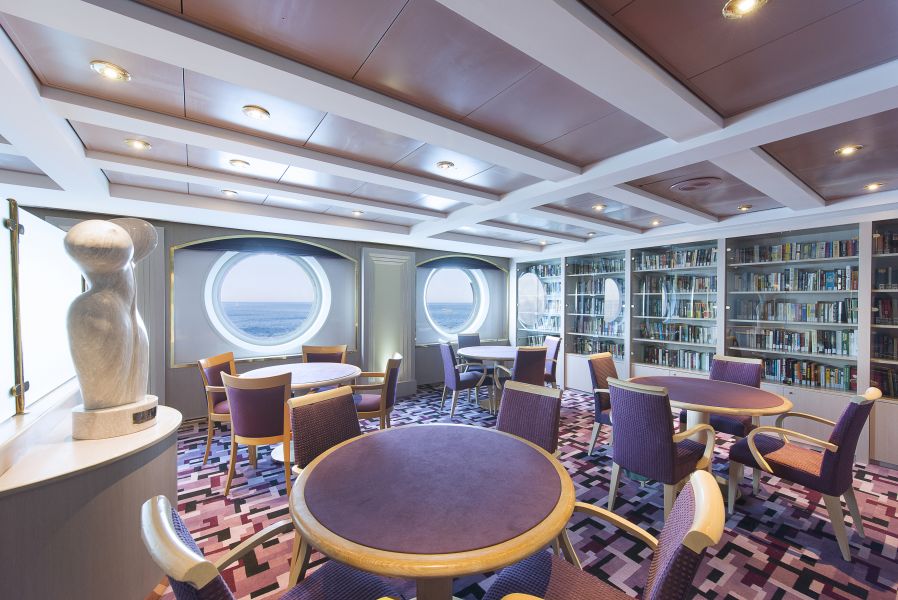
The ship's card room is located on deck 7 and seats 28 guests.
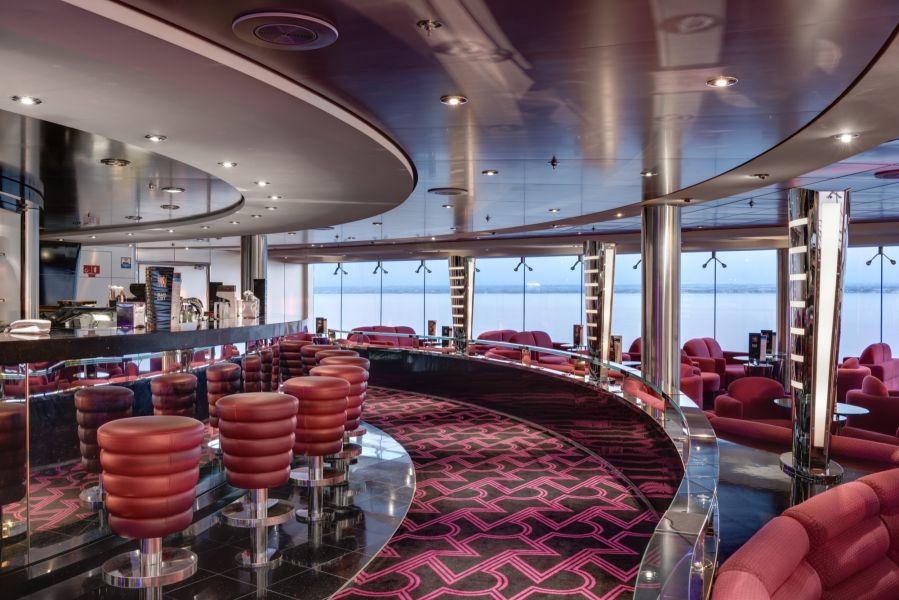
Late-night bar and nightclub with a 450 square foot dance floor.
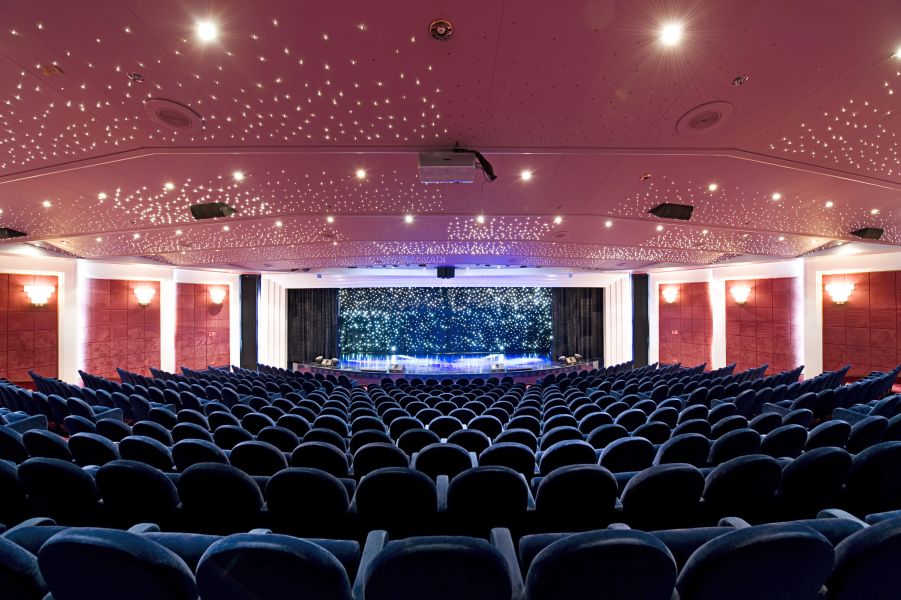
713 seat theatre, and the main show lounge onboard. Offers tiered seating, and features small-scale production shows and cabaret performances.
The images shown are for illustration purposes only and may not be an exact representation of what you find on the ship.
The images shown are for illustration purposes only and may not be an exact representation of what you find on the ship.
| 7 nights aboard the MSC Opera | |||
| Drinks packages available. | |||
| Evening entertainment & Broadway style shows | |||
| Speciality Restaurants (charges may apply) | |||
| Award winning MSC Aurea Spa (charges apply) | |||
| Gratuities Included | |||
| Port Taxes and Fees | |||
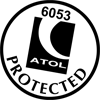 | ABTA and ATOL Protection* | ||
Date 13th Jul 2025 |
Nts 7 |
Interior £772pp |
Oceanview £872pp |
Balcony  |
Suite  |
Date 13th Jul 2025 |
Nts 7 |
Interior £772pp |
Oceanview £872pp |
Balcony  |
Suite  |


| Interior staterooms from | £772pp | ||
| IB | Interior (Bella experience) |  | |
| IM1 | Junior Interior (low deck) |  | |
| IM2 | Junior Interior (medium deck) | £772pp | |
| Oceanview staterooms from | £872pp | ||
| OB | Ocean View (Bella experience) |  | |
| OO | Junior Ocean View with obstructed view | £872pp | |
| OM1 | Junior Ocean View (low deck) |  | |
| OM2 | Junior Ocean View (medium deck) |  | |
| OL1 | Premium Ocean View (low deck) |  | |
| Balcony staterooms |  | ||
| BB | Balcony (Bella experience) |  | |
| BM1 | Junior Balcony (low deck) |  | |
| BA | Balcony Aurea |  | |
| Suite staterooms |  | ||
| SR1 | Deluxe Suite Aurea (low deck) |  | |
| Interior | Oceanview | Balcony | Suite | |
| (All prices are £GBP per person) | ||||
| Sun 20th Jul 202520 Jul 25 |
 |
943 |
 |
 |
| Sun 27th Jul 202527 Jul 25 |
 |
1,054 |
 |
 |
| Sun 3rd Aug 202503 Aug 25 | 1,004 | 1,074 |
 |
1,984 |
| Sun 10th Aug 202510 Aug 25 |
 |
1,242 | 1,562 | 2,002 |
| Sun 24th Aug 202524 Aug 25 | 903 | 983 | 1,363 | 1,903 |
| Sun 31st Aug 202531 Aug 25 | 732 | 872 |
 |
1,892 |
| Sun 7th Sep 202507 Sep 25 | 833 | 973 |
 |
1,833 |
| Sun 21st Sep 202521 Sep 25 | 1,030 | 1,170 |
 |
1,963 |
| Sun 28th Sep 202528 Sep 25 | 908 | 1,048 |
 |
 |
| Sun 5th Oct 202505 Oct 25 | 857 | 997 | 1,180 | 1,870 |
| Sun 12th Oct 202512 Oct 25 | 874 | 954 |
 |
 |
| Sun 19th Oct 202519 Oct 25 | 864 | 954 | 1,264 | 1,754 |
| Sun 26th Oct 202526 Oct 25 | 691 | 831 | 1,161 | 1,691 |
Fusion Cruises when selling travel arrangements is a trading name of The Midcounties Co-operative Ltd. Fusion Cruises is an Accredited Body Member of Midcounties Co-operative Travel Consortium. (ABTA:P6652, ATOL:6053).
Book with Confidence. We are a Member of ABTA which means you have the benefit of ABTA’s assistance and Code of Conduct.
Some of the flights and flight-inclusive holidays on this website are financially protected by the ATOL scheme but ATOL protection does not apply to all holiday and travel services offered on this website. This website will provide you with information on the protection that applies in the case of each holiday and travel service offered before you make your booking. If you do not receive an ATOL Certificate then the booking will not be ATOL protected. If you do receive an ATOL Certificate but all parts of your trip are not listed on it, those parts will not be ATOL protected. Please see our booking conditions for information, or for more information about financial protection and the ATOL Certificate go to: www.caa.co.uk
